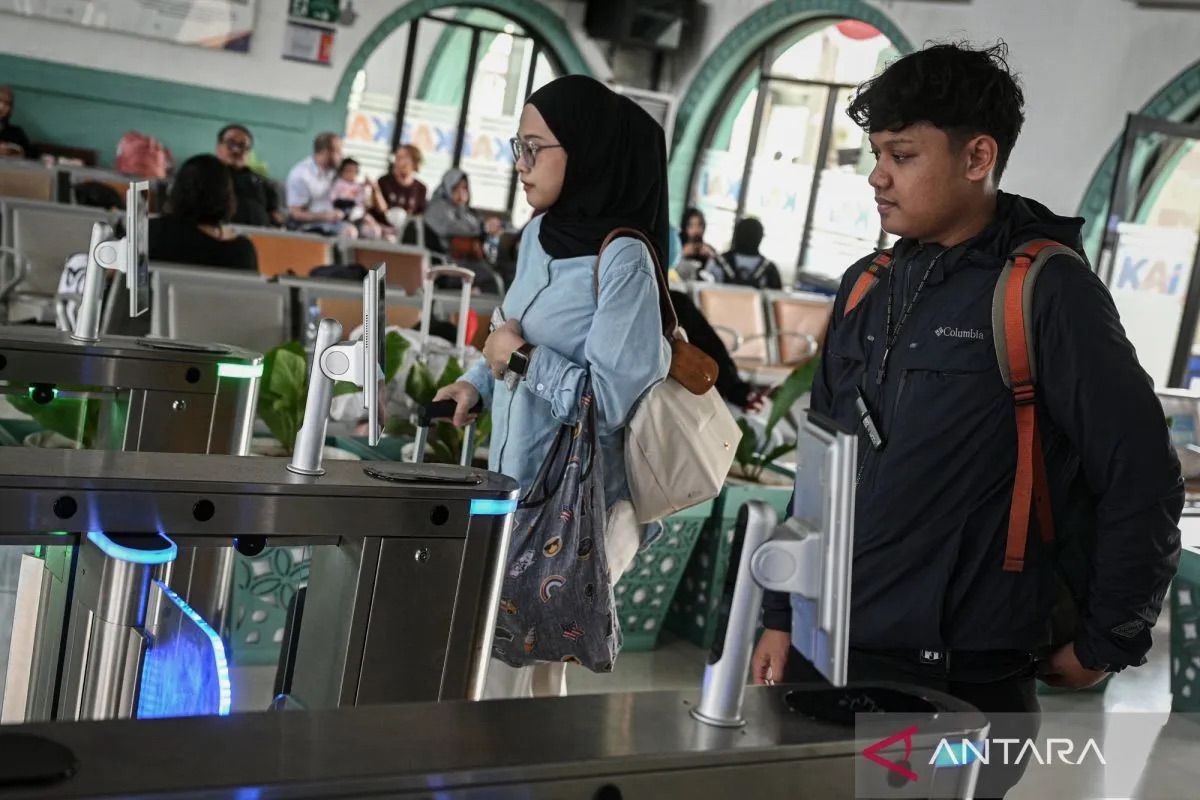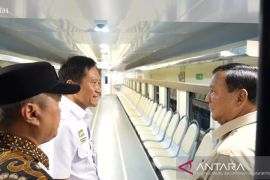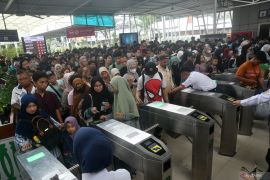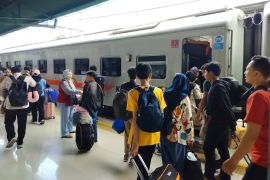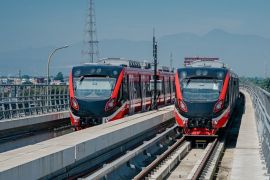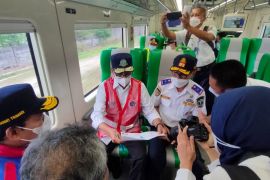KAI Vice President of Public Relations Anne Purba, in a statement quoted in Jakarta on Saturday, stated that facial recognition technology has currently been implemented at 22 stations and will continue to expand.
"Face recognition boarding gate technology implements digital technology when customers board," said Purba.
She explained that the technology is equipped with a camera to identify and validate passenger identities through facial recognition. Passenger identity data has been integrated with the data on train tickets.
Through this innovation, long-distance train passengers no longer need to present various personal documents such as physical boarding passes, e-boarding passes, or ID cards. This makes the train boarding process more efficient.
"Certainly, the use of facial recognition boarding technology is very helpful in saving paper," said Purba.
Sustainability Principles
In the period from January to July 2025, KAI was able to save 16,295 rolls of paper used to print physical tickets. The value of this efficiency is estimated at IDR 230 million (US$ 14,179).
"This aligns with sustainability principles, which have a direct impact on environmental preservation," she said.
During the three years of implementing this technology, KAI recorded a total of 16,398,343 customers using this service. The efficiency is increasingly noticeable, with savings reaching 40,296 rolls of paper, or the equivalent of more than IDR 599 million (US$ 36,897) in ticket printing costs, and this figure will continue to grow as usage increases at various stations.
Furthermore, Purba stated that PT KAI's digital transformation, including the implementation of technologies such as Face Recognition and the Access by KAI application, is part of the company's efforts to create public transportation that is responsive to technological advances.
Improved operational efficiency and digitalization accelerate various processes, including ticket booking and boarding, creating a faster and more convenient service for customers at stations. Furthermore, this digital system reduces reliance on manual processes and ticket printing, ultimately supporting efficient and environmentally friendly operations.
By using facial recognition technology, customers directly contribute to the creation of modern and sustainable public transportation services. Active customer participation is a crucial part of the joint effort to support the transformation of national railway services.
Purba emphasized that KAI continues to innovate and transform in terms of service digitalization.
"KAI today is different from the KAI of the past. Learning from the experience of COVID-19, KAI accelerated digitalization by introducing e-boarding passes, allowing passengers to proceed directly to the platform without needing to print a physical ticket," said Purba.
KAI pioneered facial recognition boarding gates at 22 stations, providing an efficient, safe, and modern, touchless journey. This will continue to be expanded for the convenience of passengers throughout Indonesia.
KAI is targeting the development of increasingly integrated digital services. Intermodal integration is a key focus, with the Access by KAI application expected to seamlessly connect travelers from their starting point to their final destination.
"This initiative aligns with KAI's vision to drive sustainable transportation and improve people's quality of life," said Purba.
With a data-and technology-driven approach, KAI is committed to creating a modern, inclusive, and efficient public transportation service ecosystem for all levels of society.
Related news: RI Govt says its priority improving nationwide connectivity
Related news: Indonesia's Whoosh train debt: Danantara, KAI explore rescue plan
Related news: Trains to remain smoke-free as public transport: Ministry
Translator: Arie Novarina
Editor: Azis Kurmala
Copyright © ANTARA 2025
